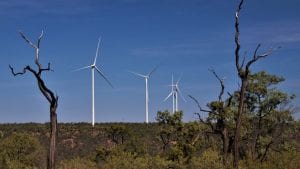Prices for Certified Emission Reductions (CERs) – the international carbon credits – sank to a new low on Monday, with Point Carbon reporting Tuesday that the Clean Development Mechanism-issued carbon credits had come “within touching distance” of €3, as traders offloaded them amid plentiful supply of cheaper European credits, known as ERUs, which can also be used for compliance in the EU ETS. The benchmark December 2012 secondary CER contract closed at €3.18, the day’s high, but down 2 per cent on Friday’s close as traders continued to unwind long positions, says Point Carbon. In afternoon trade the UN offset slid to a record low of €3.08. “The feeling is that with increased ERU supply coming into the market, there’s not much reason to hold onto CERs, particularly because of oversupply in the carbon market as a whole,” said one trader, adding that €3 was a critically important support level.
EU carbon allowances fell over 2 per cent on Monday and hit a three week low as natural gas prices retreated in view of plentiful supply, making it cheaper for utilities to switch to the cleaner-burning fossil fuel, thus reducing their need for carbon permits. The spread between front-year EUAs and CERs rose to €4.39, a new four-month peak and close to a four-year high of €4.51. “Weaker gas prices were the main driver today as there was little else to provide direction in other markets,” said one trader, noting that usually stagnant summer trading conditions had become increasingly prevalent.
More money for solar challenge
The federal government has announced that it is dedicating almost $1.3 million of funding to Australia’s next generation of solar researchers. “The Skills Development Program supports the work of our upcoming solar researchers who will ultimately work with industry to help make solar more efficient and cost effective,” energy minister Martin Ferguson said, speaking at the Australian Solar Institute’s (ASI) ‘Three Minute Solar Thesis Challenge’ at the Australian National University. The ‘Three Minute Solar Thesis Challenge’ gave ASI PhD Scholars and Postdoctoral Fellows three minutes and three slides to convince an eminent panel of researchers of their project’s merits.
“From techniques to improve the efficiency of solar cells made from low-cost and readily available organic materials, to investigating ways to optimise hybrid solar-diesel systems in remote areas using smart grids, the Skills Development Program is helping to drive Australian solar innovation,” Ferguson said. “I was pleased to meet some of the recipients today and to emphasise that the Government is not only investing in the direct results of their work but in the long term development of their talent as researchers.” The new funding recipients will join an existing group of 24 early career researchers working to advance photovoltaic and concentrating solar power technologies through the ASI’s Skills Development Program.
Carbon compensation to the bottom line
Arrium, the mining and materials company formerly known as Onesteel, has raised eyebrows after declaring that its compensation from the carbon price will be recorded as “underlying profit” in this year’s accounts. Arrium received a $45 million advance under the Steel Transformation Plan, but rather than offset it against the losses that the government negotiators must have assumed would be forthcoming from the carbon price, Arrium has chosen to book it as part of its “underlying net profit” for the 2011/12 year of “at least $190 million.
Joyously for the shareholders, Arrium will also book a tax benefit from the implementation of the Mineral Resource Rent Tax (MRRT) of $35 million. The $35 million arises from the specific MRRT starting base deduction that is provided as a shelter for mining investments made up to the date of the announcement of the MRRT on 2 May 2010.
Cleantech Comp announces semi-finalists
The 30 semi-finalists have been announced for the Australian Clean Technologies Competition 2012, having been selected from a record field of 104 entrants. According to Australian Cleantech managing director John O’Brien, the group of 30 comes from around Australia and ranges from clean transportation companies, to those in smart power, green grid, energy storage, green building, renewable energy, energy efficiency, and air water and waste management. Collectively, they have raised nearly $100 million for their businesses so far, with about 25 per cent of this coming from external funders.
The semi-finalists will join the Cleantech Business Accelerator Program, which includes individual mentoring to help with the development of their business plan; an intensive mentoring workshop; and the submission of a final business plan. From this course, up to six companies will be selected as finalists and will receive additional advice and introductions. The Australian winner will be announced in October, and will be funded to represent Australia at the international Global Cleantech Open Competition in the US in November 2012. All of the finalists will be invited to join the Australian delegation attending this event.
Hunter Hall appoints Deverall CEO
Ethical investment company Hunter Hall International says it has appointed the former head of perpetual Investments, David Deverall, as CEO. Deverall was head of Perpetual from 2003 to 2011 and is a former head of strategy at Macquarie Group. He said ethical investing has “emerged as the preferred approach to investment for many individuals and superannuation funds and Hunter Hall has shown tremendous leadership in the category.” He will take over from interim CEO Michael Walsh.







